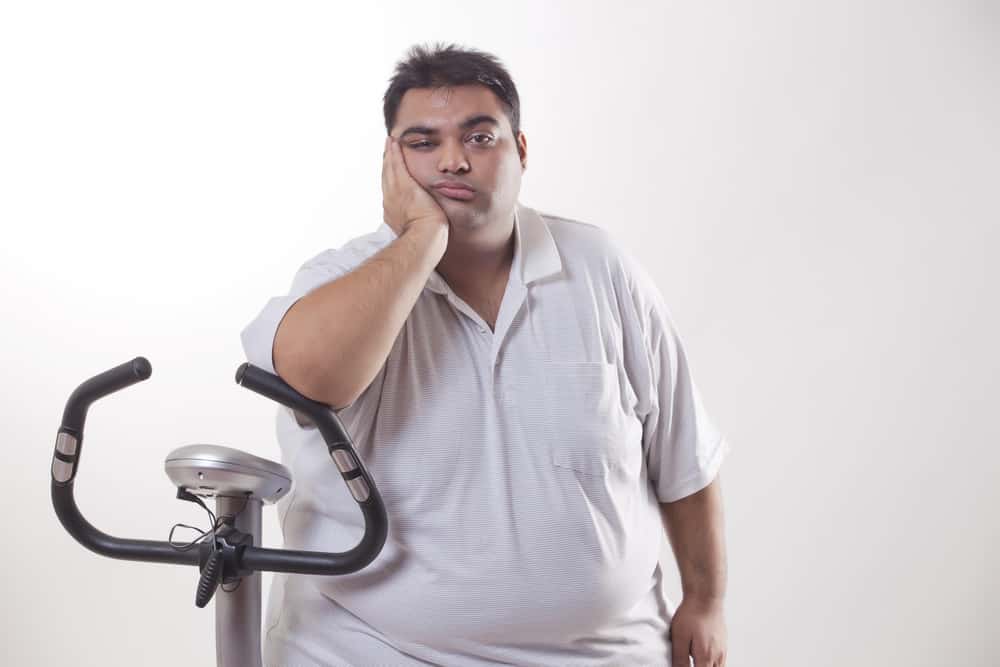Contents:
Medical Video: 12 Strange Behaviors That Are Normal in Other Countries
"Living like a box full of chocolate, you will never know what you will get," said Forrest Gump.
This saying might be true too, especially when talking about the human body. You think you really understand every inch of your body and its abilities - you push your body to work out in the gym, give it energy at mealtime, and you carry it wherever you go. Until one day the body does some strange things that you never knew you could do, making you only able to scratch your head.
Did you know that the human body can ...
1. Stiff joints can predict the weather
Ancestors always say that when their knees and hips hurt, they want to rain. And although the truth of this myth is still widely debated among doctors, many studies have shown a link between increasing recurrence of joint disease, such as arthritis, and weather and climate temperatures. For example, a study from Tufts University, reported from Men’s Health, found that for every temperature drop of around 10 degrees, many participants who reported their osteoarthritis knee pain felt worse. So what? Researchers believe that air pressure helps stabilize and mobilize hip joints, so changes in air pressure will change the condition of the joints from the previous one.
Researchers also speculate that a decrease in air temperature can change the thickness of synovial fluid, which helps lubricate joints. "When the weather starts to cloud, atmospheric pressure will drop. "The main sensory nerve end of the joint detects a relative increase in joint fluid pressure, resulting in increased pain," said orthopedic surgeon Robert Tait, MD, citing Woman’s Day. So, next time aching joints are rheumatic, it's good not to provide an umbrella before it rains.
2. Eyes can be suddenly blind to warn you are cold
It's natural law if we are cold, the body will shiver. But how do we know if the cold temperature is on the verge of danger? It turns out that the eye is not just a window to the world. According to Rupe Hansra, OD, senior director of eye care at LensCrafters, your eyes can tell you if you are in an extreme cold area. "When hypothermia gets worse, the blood vessels in the eye constrict to save energy," said Dr. Hansra. This will cause temporary blindness.
But…
3. The power of the mind can keep the naked body warm in extreme cold temperatures
There is a group of famous Tibetan monks who can dry wet cloth wrapped around their naked bodies at sub-zero temperatures, only by meditating and raising their core temperature. In 2013, a team of scientists tested the truth: The research team taught a group of "common" non-meditators of powerful breathing techniques - specific inner power techniques that involved projecting imaginative fire in certain body parts. Although participants could not completely dry the blankets wet to 100 percent (requires a lot of time and practice) but they were able to slightly increase their body temperature to warm up. This type of meditation works by triggering the thermogenesis process, or the production of body heat, while temporarily inhibiting your body's natural cooling mechanisms, such as sweat and blood vessel dilation.
4. Your heart can predict the future
Your heart doesn't know when you will get married or what door prize you will receive from your bank credit card draw, but the findings of a recent study that shows the heart can anticipate certain events without any sign of being preceded. Researchers from Northwestern University, the University of California, and Università di Padova in Italy showed a series of images in unexpected sequences to a group of study subjects, and studied their reactions. Some images are neutral; others are intended to ignite a vibrant response.
The scientists found an acceleration of heart rate 10 seconds before presenting a stimulating image, but not before neutral images - even though participants did not know which one to display first. These results indicate the heart can feel when something thrilling or disturbing will occur, even though researchers still don't know why.
So listen to your heart!
5. The eye is not the guardian of a good secret - Eyes can leak that you are in love
If you don't want the person to know that you keep feeling, you should choose a place that is rather dim when chatting. When you have an interest in someone, your pupils tend to enlarge. This is the result of the sympathetic nervous system, which controls the dilation of the pupils, to leak the secret of your heart. However, enlarged pupils are not only when you are dealing with a heart beat. You can also widen when you see things that interest you, from tempting chocolate cakes, to sunset.
6. The nose can bring you nostalgia for the past
Ever smelled a particular fragrance and immediately remembered a former lover?
Maria Larsson, professor of psychology at Stockholm University, Sweden, described the human nose as a "time machine". The brain's olfactory cortex (responsible for the sense of smell) is located in the limbic system, an area in the brain that functions to produce emotions and store memories. The smell, memories, and feeling so deeply intertwined with one another that even a little of the ex-martabak chocolate cheese is favorite can make you confused.
7. You can have super powers like Superman
Yes, a mother really might be able to lift a car if her child is trapped underneath. Your instincts might say "impossible" in this case. But, the human body and mind are capable of doing things that are beyond logic that you may not necessarily think of trying.
We all have the potential to become The Hulk. When your brain is warned of danger by the sympathetic nervous system, the brain releases adrenaline, which speeds up the heart rate, increases breathing, widens the pupils, and, most importantly, closes your digestive system to allow the muscles to contract with extraordinary strength.
In addition, "During situations that require strength, you always have a surge in barriers from the brain not to ovulate the muscles, which helps prevent injury," said David Pearson, Ph.D. "Extreme stress limits this obstacle by giving the body abundant stimulation, so that it generates super strength." Interestingly, Pearson added, in the case of this documented "superpower", the hero is rarely hurt. One thing is unfortunate: this superpower is not permanent.
8. The face has a deadly bermuda triangle area
Damaged facial skin, especially in the bermuda triangle area can pose a risk of fatal infection.
The Bermuda Triangle consists of areas in both corners of the mouth to the bridge of the nose, including the lobes and sides of the nose, as well as the maxilla (under the nose, palate area). Blood vessels in the face are close to the blood vessels that are at the base of your brain. This means that facial blood vessels carry blood flow to the brain vessels, and the presence of infection in the T-zone of your face can cause bad things to be carried into your blood to the brain, causing a cavernous sinus (CST) blockage , meningitis, or brain abscess.
So, if you enjoy squeezing pimples on your T-zone face, or if you like to nip your nose deeply, scratch and cause infection, you can end up killing yourself.
9. Your eyes can explode
Fuchs ’Corneal Dystrophy often happens without realizing it until it's too late. Only one percent of the population has this eye disease, but those who are hit by adversity can experience an eyeball explosion.
So what happened? If you have Fuchs' Corneal Dystrophy, cells in the inner layer of the cornea called "endothelium" start to die one by one. These cells are responsible for pumping water out of the eye, but because of its extinction, the water becomes stuck in the cornea and swells. Then, the pressure continues to block so high that water can explode out of the eye in the form of painful corneal abrasions. The result, just imagine a cracked camera lens. The picture won't be clearly visible, right?
10. The ecosystem in your navel is like a rainforest
Scientists have recently discovered that your belly button may have the same settings as the diverse ecosystem of bacteria most often found in rainforests. Micrococcus species live very happily around the surface of your navel, where they attach to meat and live peacefully from oxygen supply.
On average, the navel holds around sixty-five different species of bacteria. Of course, although a dirty, moist and warm belly button might be the most comfortable place to breed, bacteria might also walk to other areas of the body, such as the Bermuda triangle and perhaps your nasal cavity.
11. Not only dolphins, you can also have supersonic hearing
Supersonic hearing is a recognized hearing effect, which allows humans to "hear" sounds from super-high frequencies from normal frequencies that humans can hear by stimulating the cochlear base through heat transfer by the ear bones.
Next time you're stuck in the noise of the dance floor when your friend is busy talking about something, just lean your right ear. The right ear works better than the left ear to follow a fast speech rhythm, according to UCLA researcher David Geffen School of Medicine. Conversely, if you are in an elevator and hear a faint song from the speaker that doesn't sound so clear, lean your left ear towards the sound source. Left ear is better at sorting musical tones.
12. "If confused, handle!"
Ever heard of it, the half sentence joked, "If confused, handle!" Who would have thought that this current phrase was not mistaken.
When your head is yellow, try holding or holding a sturdy object. The part of the ear that regulates the balance (cupula) floats in a liquid of the same density as blood. When blood pressure is low or after drinking alcohol, the cupula will lack its density and begin to float up due to the blood in the cupula becoming runny. This change confuses your brain. Holding on to sturdy objects will give your brain a second opinion, so that your body will feel more balanced.
READ ALSO:
- 9 Amazing Facts About Twins You Don't Know
- 15 Interesting Facts About Kidal
- 12 of the World's Strangest and Rarest Diseases












